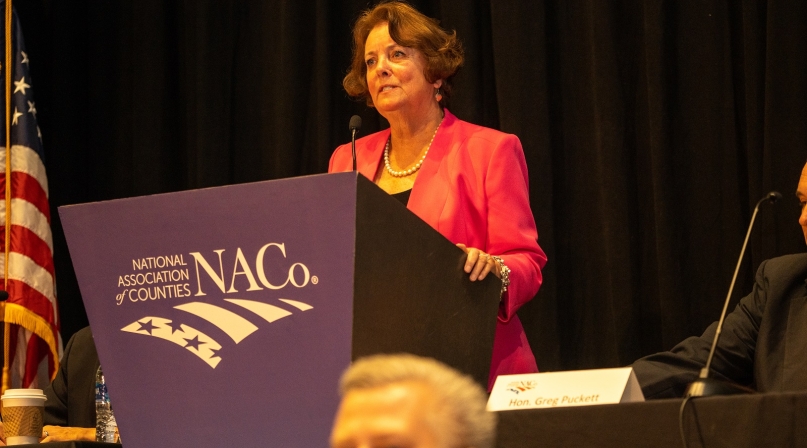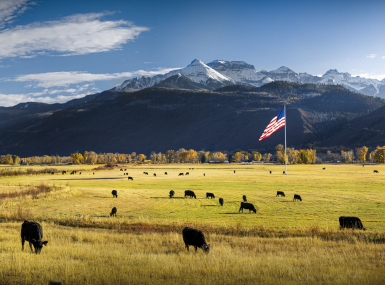As RAC celebrates 25 years, eyes are on next year's farm bill

Key Takeaways
NACo’s Rural Action Caucus is now old enough to rent a car. The broad coalition representing the interests of nearly 70 percent of America’s counties celebrated its 25th anniversary with a focus instead on the future: The 2023 farm bill.
Colleen Landkamer, a former NACo president and “mother of RAC” returned to mark the occasion. She has followed two stints as a Blue Earth County, Minn. commissioner with appointments as Minnesota’s state director for USDA’s Rural Development, including her current appointment by President Biden.
After two years on the 15-person Rural Renaissance Task Force, former NACo President Betty Lou Ward, of Wake County, N.C., made RAC a full-fledged caucus in 1998, chaired by Landkamer and Harney County, Ore. Judge Dale White.
“We had a great Agricultural Affairs Committee, and their job was to talk about agriculture. Our job is to talk about how to invest in our rural places, how do we make sure that the resources are there and that we can thrive and grow and grow America and how do we partner with urban, rural and suburban?” Landkamer said. “We know none of us can do it by ourselves, and that includes urban, that includes rural and that includes suburban.”
After reflecting on the past 25 years, the caucus turned its attention to Sept, 30, 2023, when the 2018 farm bill expires.
National Cooperative Business Association CEO Doug O’Brien said the word on Capitol Hill is that there would be no new money in the $400 billion, five-year farm bill.
“You look at the dynamics and things happening right now that probably sounds right,” he said.
O’Brien said roughly two-thirds go to nutrition programs, with some going to risk management programs for farmers. There was a new source of support however, from the Rural Partners Network, an alliance of federal agencies and civic partners.
“The network is interested in some new money to help rural places have the capacity to really deal with their future, and that’s something that more and more people in Washington, D.C. are recognizing, that a lot of rural places, while they have wonderful assets and fantastic leaders, they don’t have the scale, they don’t have the staffing, you know, to make sure that that they’re ready and have a plan for the future. Part of the reason why people are understanding that more now is because as you know, I mean, there was lots of dollars that flowed out in this last couple of years, including in broadband, including water, including in a lot of things, and there’s a lot of rural communities. Typically, those rural communities that have been relatively impoverished, underrepresented, underserved, a lot of those places, they’re not necessarily ready for that money in a way that they can really make the most of it.”
Attachments
Related News

USDA streamlines foreign-owned agricultural lands transaction reporting with online portal
On January 22, the U.S. Department of Agriculture (USDA) launched a new online portal to streamline reporting transactions involving U.S. agricultural land by foreign entities.

CMS announces Rural Health Transformation Program funding
On December 29, the Centers for Medicare & Medicaid Services (CMS) announced $50 billion in awards over 5 years to all 50 states under the Rural Health Transformation Program.

Senators introduce bipartisan UPGRADE Act to support small and rural public water systems
On December 15, Sens. Lisa Blunt Rochester (D-Del.) and Roger Wicker (R-Miss.) introduced the Unincorporated Partnerships for Grant Resources, Assistance, and Drinking Water Enhancements (UPGRADE) Act (S. 3465), a bipartisan bill that would strengthen federal support for small public water systems and helps unincorporated communities access clean and affordable water.
